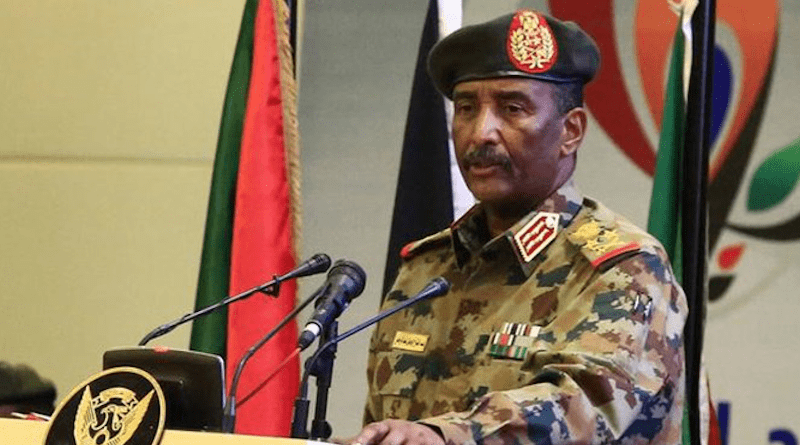US Doubles Down On Sudan Sanctions – OpEd
The US State Department has sanctioned Sudan’s government over used of chemical weapons. The government led by General ‘Abd al-Fatah al-Burhan, US sanctioned commander of the Sudanese Armed Forces (SDF), wrestled control of Khartoum from the Rapid Response Forces (RSF) in March. This is a major blow to al-Burhan and Islamist allies who expected the shift across battle fronts to attract more international support.
Sanctions specifically targeted “Sudan’s military [for use of] chemical weapons on at least two occasions against the paramilitary group it is battling for control of the country, the Rapid Support Forces (R.S.F.).” Media reports highlighted “U.S. officials expressing concern about potential future use in densely populated parts of the capital, Khartoum.” Since March, international organizations have also rang alarms over “[f]ears of retaliation…among residents of areas in Khartoum State previously controlled by the RSF.” Concerns extend to Islamist militia affiliated with the SAF operating alongside army units with possible access to chemical weapons.
The new measures taken by the US Administration add pressure on warring parties as crimes against civilians become rampant. In January, the State Department announced sanctions against ‘Abd al-Fatah al-Burhan as leader of the SAF, who “continued to commit atrocities, including targeting civilians and civilian infrastructure, and executing civilians.” The US accused al-Burhan and the SAF of violating international humanitarian law. The announcement against al-Burhan came days following claims that SAF offensive to retake Giza state involved acts that could “constitute war crimes and some, such as the deliberate killings of civilians, may also constitute potential crimes against humanity.”
Al-Burhan is also targeted for “commanding forces that have weaponized starvation, systematically obstructed the flow of humanitarian assistance” and crimes committed by jihadist groups affiliated with SAF. Islamist leaders of the Al-Bara’ ibn Malik Brigade, for example, have been documented “issuing fatwas to shoot and kill men accused of cooperating with the RSF.” The Brigade also threatened to slaughter residents of El Hadj Yusif in East Nile in Khartoum North.
The association between SAF and Islamist militia is undeniable. Well established leaders such as Abdul Hai Yusuf are on record “claiming Islamists, not the army, deserve credit for recent battlefield successes.” Since start of the conflict between SAF and RSF, the ‘shadow battalions’ have proliferated to over twenty armed groups emeerging from the Islamic Movement, such as the Sudan Shield Forces. These groups are committing widespread crimes against civilians and are unlikely to be affected by any sanctions regimes. The international community must remain vigilant and pressure parties to the negotiations table.

